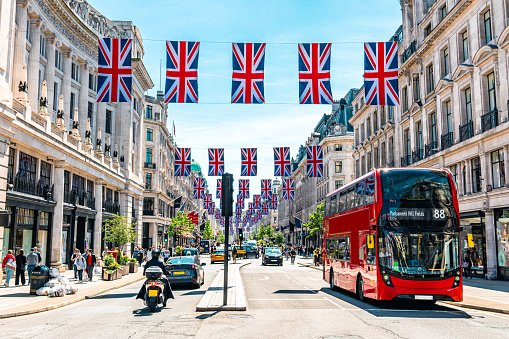Introduction.
Relocating to the UK is a dream for many Nigerians, and it’s easy to understand why. With its vibrant cities, top universities, and diverse job market, the UK offers a lot of opportunities for those seeking to start fresh.
But, if you’ve been thinking about making the move, you probably already know it’s not a walk in the park.
The process can be complex, time-consuming, and sometimes overwhelming, especially when you’re unfamiliar with how the system works.
But don’t worry—I’ve got you covered. This guide will walk you through the steps you need to take if you’re looking to relocate from Nigeria to the UK. I’ll break it down in simple terms, explain everything you need to know, and share practical tips along the way.
By the end of this, you’ll have a clearer idea of how to make your UK relocation a reality.
How Do I Relocate To The UK as a Nigerian?
1. Know Your Visa Options.
The first thing you need to know when relocating to the UK is that you’ll need a visa. The UK has different types of visas depending on the reason for your move, whether it’s for work, study, or family reasons.
Here are the main types of visas Nigerian citizens typically apply for:
- Work Visas: If you’ve got a job lined up in the UK, a work visa is your ticket in. The UK offers several categories of work visas, like the Skilled Worker visa, which is for people with specific skills or qualifications that are needed in the country. If you don’t have a job yet but are a highly skilled worker, there’s also a Global Talent visa that you might be eligible for.
- Student Visa: The UK is home to some of the world’s best universities, and many Nigerians move to the UK to pursue higher education. If you’re planning to study in the UK, you’ll need to apply for a Student visa. But be prepared—getting a student visa means you’ll need to show that you’ve been accepted by a UK university and that you can financially support yourself during your stay.
- Family Visas: If you have family members in the UK, you may be eligible for a Family visa. This is for spouses, children, or other dependent relatives who want to join family members already living in the UK.
- Visit Visa: If you’re planning to visit the UK for a short period (for tourism, business, or other short-term reasons), you’ll need a Visitor visa. However, this type of visa is not meant for those looking to stay long-term.
Each visa type has its requirements, processing time, and fees. So, before applying, make sure you know which visa is the best fit for your situation. I recommend checking the UK government’s official website for the latest details on visa applications.
2. Find a Job or Secure a Spot at a UK University.
If you’re applying for a work or student visa, you’ll need to have a job or university offer first. Here’s what you should do:
- For Work: Start your job search early! There are many UK-based websites where you can find job listings, such as LinkedIn, Indeed, and Totaljobs. If you have the skills the UK needs, companies will be more likely to sponsor your work visa. Make sure your CV is up to date and tailored to the UK job market, and don’t forget to highlight any international experience you might have.
- For Students: You can apply to universities in the UK directly through their websites or via platforms like UCAS (for undergraduate courses). The good news is that many Nigerian students get scholarships and financial aid to help with tuition fees. Be sure to apply as early as possible and gather all the necessary documents for your student visa.
3. Prepare Your Documents.
Once you’ve got your visa type sorted and either a job offer or university acceptance letter in hand, it’s time to gather your documents.
The UK is very particular about paperwork, so make sure everything is in order. Some common documents you’ll need include:
- A valid Nigerian passport
- Proof of job offer (for work visa applicants) or university acceptance letter (for student visa applicants)
- Financial evidence that you can support yourself during your stay in the UK
- A tuberculosis (TB) test certificate (if required)
- Proof of English proficiency (like an IELTS test score, unless you’re from an English-speaking country)
- Any additional documents based on your visa category (for example, a marriage certificate for a family visa)
Be sure to check the specific document requirements for the visa you’re applying for, as they can change from time to time. Submitting incomplete or incorrect paperwork could delay the process or even cause your application to be rejected.
4. Financial Preparation.
One of the most important aspects of relocating to the UK is making sure you have the financial resources to live there comfortably.
The UK is known for being expensive, especially in cities like London. So, you’ll need to plan your finances carefully. Here’s what you should think about:
- Visa Fees: Applying for a visa comes with costs, including the application fee and the Immigration Health Surcharge (IHS). The IHS allows you to access the UK’s National Health Service (NHS) while living in the country. Be sure to check the latest fee structure for your visa type, as fees can change.
- Living Costs: If you’re moving to the UK for work or study, you’ll need to prove that you can support yourself. For students, this means showing proof that you have enough money to pay for tuition and living expenses. The UK government sets minimum amounts you need to show in your bank account, and these can vary depending on where in the UK you’re going to live (for example, living in London is more expensive than other parts of the UK).
- Accommodation: Finding a place to live in the UK can be challenging, especially in big cities. Start looking for accommodation early, and be prepared to pay a deposit. You might want to consider shared housing or renting a room to save money, especially when you first arrive.
5. Understand UK Culture and Life
One of the most exciting parts of relocating is experiencing a new culture. The UK is a diverse country with people from all walks of life, and it’s a great place to learn about different cultures, lifestyles, and traditions.
That said, life in the UK can be quite different from life in Nigeria, so it’s important to be prepared for some changes.
- Weather: The UK is known for its cold and rainy weather, so pack accordingly! You’ll need to get used to the lack of sun in the winter months, but don’t let that put you off—it’s part of the charm.
- Public Transport: The UK has an extensive public transport network, including buses, trains, and the famous London Underground (Tube). Unlike Nigeria, where many people rely on cars, public transport is the most common way to get around in the UK, especially in cities.
- Work Culture: UK work culture can be different from what you’re used to. The workweek is typically Monday to Friday, with weekends off, and there’s a strong emphasis on work-life balance. Be prepared for a more formal environment in many workplaces, but at the same time, many companies in the UK are open to diversity and inclusivity.
6. Settle In and Make It Home
After you’ve taken care of all the paperwork, you’re almost ready to pack your bags and move! But there’s still one important thing left—settling into your new life in the UK.
This is where things get fun. You’ll need to adjust to new routines, meet new people, and start building your new home.
Join Nigerian communities or social groups in the UK, where you can find people who understand what you’re going through and who can offer support. You can also explore local Nigerian stores and restaurants to get a taste of home.
Conclusion.
Relocating to the UK as a Nigerian can be a long and challenging process, but the rewards are worth it.
You’ll get access to top-notch healthcare, education, and career opportunities, and you’ll have the chance to experience a new culture.
It’s not always easy, but with the right preparation and mindset, you can make the move and start a new chapter in your life.
The question is: Are you ready to take the plunge and make the UK your new home?





GIPHY App Key not set. Please check settings